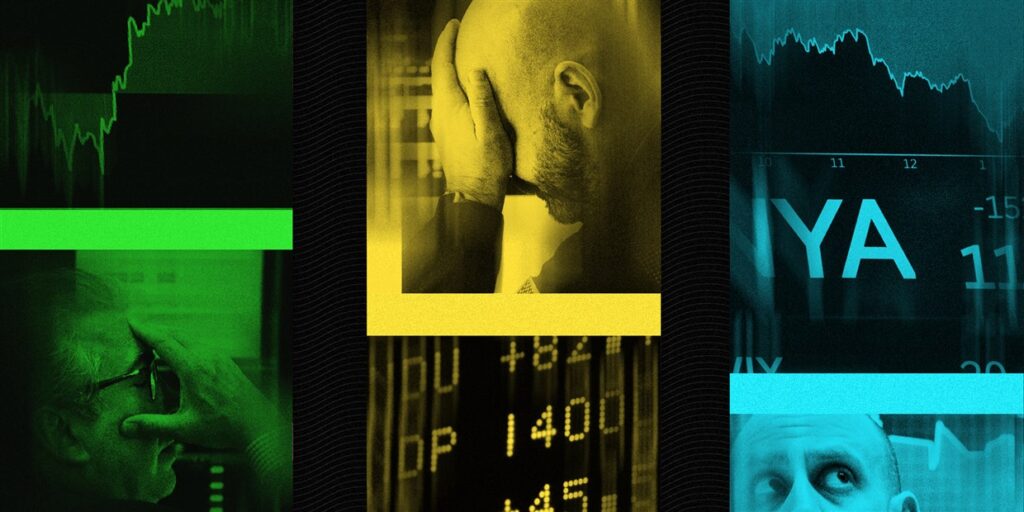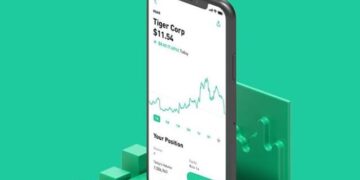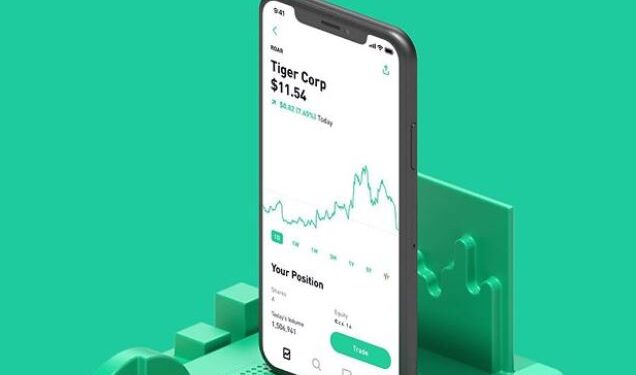Designed to distract: Stock app Robinhood nudges users to take risks
“I liken it to giving the keys of a sports car to a 12-year-old,” said Tara Falcone, a certified financial planner and the founder of ReisUP, a financial education company.
Also read:
Will regulators make an example of trading unicorn Robinhood? – Fintech Futures
SEC charges Robinhood with misleading customers about how it makes money – CNBC
Robinhood Is Not Gamifying Markets. It’s Democratizing Them – Bloomberg
Securities regulators in Massachusetts have decided to attack the popular online brokerage Robinhood Financial LLC, the latest in a long pattern of regulators harassing hugely beneficial innovations. Who can forget the early 1980s, when inflation was running at double-digit rates and banks were prohibited from paying interest on checking deposits, but the Securities & Exchange Commission was fighting money market funds?
Robin Hood was famous for taking from the rich and giving to the poor. Robinhood, by contrast, is an app that takes advantage of the small and unsophisticated investors, and uses sophisticated gamification techniques to get them to spend money.
- That’s according to two new lawsuits against the company, one of which Robinhood has settled. The other one it’s fighting.
- The SEC charged Robinhood with deceiving customers about how the stock trading app makes money and failing to deliver the promised best execution of trades.
“Between 2015 and late 2018, Robinhood made misleading statements and omissions in customer communications, including in FAQ pages on its website, about its largest revenue source when describing how it made money — namely, payments from trading firms in exchange for Robinhood sending its customer orders to those firms for execution, also known as ‘payment for order flow,’” the SEC said.
Robinhood is the fastest-growing brokerage the world has ever seen, growing to an $11 billion valuation on the back of its ostensibly free trades and the gamification tools it uses to encourage its customers to do more of them.
Robinhood has agreed to pay $65 million to settle SEC charges that it lied about its trades being free. Its duty of “best execution” to its customers forced to offer better prices than the official “NBBO” price if those were available, the SEC says. Instead, Robinhood would settle all trades at or near NBBO (which stands for national best bid-offer) and pocket the difference.
Finance experts who spoke to NBC News said that the app’s success comes with some risk for consumers, particularly those new to investing. Rather than directing users to adopt a coherent strategy, the app pushes riskier options like individual stocks and cryptocurrencies — and even offers trading on borrowed money, known as margin, and options trading, both of which are used by advanced investors but carry extreme risk.
The way that tech companies design their apps — most notably the tricks they employ to spur user engagement — is under more scrutiny than ever before. Facebook and Instagram have been criticized for encouraging endless scrolling through social media feeds, while YouTube’s recommendations system that works to keep users watching has been blamed for pushing users toward videos of conspiracy theories and extremist rhetoric.
Robinhood has said it’s democratizing America’s financial system because it doesn’t charge commissions to execute trades.
The app has elements of fun, echoing in subtle ways the congratulatory elements of smartphone games that spur users to keep playing. Financial professionals say those elements encourage people — many of them young and inexperienced — to celebrate day-trading and develop risky habits that will cost users money over time.
The state of Massachusetts has also sued the discount brokerage; that suit has not been settled, and Robinhood says it will fight it “vigorously”.
- Robinhood is held to a fiduciary standard in Massachusetts: It has a legal duty of care with respect to its customers, which involves checking that their investments are suitable.
- Instead, per the suit, Robinhood seeks to maximize the number of times that its customers trade. One Massachusetts resident has averaged 92 trades per day on the platform.

The look of numbers showing a stock rising or falling or bursts of confetti matter because they can nudge users toward either long-term financial success or potentially problematic habits or speculative ideas, experts said.
“Any sort of nudges that investors get through these technologies are affecting behaviors,” said Brad Barber, a finance professor at the University of California, Davis.
Daily push notifications showing the change in value of customers’ stocks encourage excess trading.
- Other push notifications include one saying “Choosing stocks is hard. ? Get started by checking which stock prices are changing the most.”
- One key question that will be settled in court: Do such push notifications constitute investment advice?
The app offers a toxic combination for people who aren’t careful, with low bars to trading on borrowed money and on options, which are contracts that are easy for newcomers to lose money on.
An example: Robinhood approved 71,744 Massachusetts residents for options trading. Of those, 14,439 had no investment experience at all.
“Anytime someone is providing information, you have to think about: What is their incentive?” said Henrik Cronqvist, a finance professor at the University of Miami Business School. “If there’s something you can do as broker that would generate trading among your clients, that’s how you would benefit more.”
Patriot mom with a passion for politics, finance, technology and always a lot of humor.
























































